Black legend Gilles de Rais
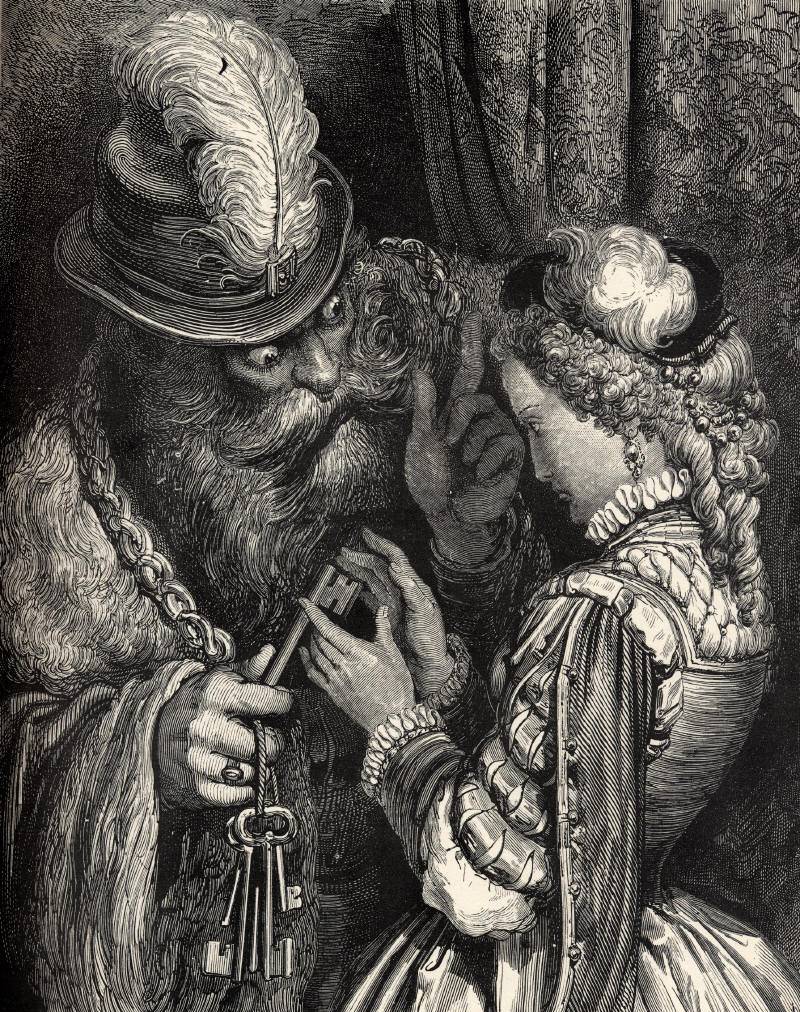
Meanwhile, this is not a joke or even a historical sensation: in the Breton ballads of the 15th – 16th centuries. the names of Bluebeard and the hero of our article alternate in such a way that it becomes completely obvious: we are talking about the same person. His name was Gilles de Montmorency-Laval, Baron de Rais, Count de Brienne. A brilliant aristocrat, one of the richest and most noblemen of his country, a peer of France. Of course, he did not paint his beard blue. Moreover, it is supposed that he didn’t have a beard at all: at that time men who were shaved "to blue" were called "blue-bearded".

Gilles de Rais was born in 1404 year, in the castle Mashekul, on the border of the French provinces of Brittany and Anjou from the marriage of offspring for many years demanding noble families de Rai and de Craon (thus trying to stop this enmity).

In 11 years he was orphaned, left in the care of his grandfather, in 16 years - married his cousin, Catherine de Thouars, who became the only wife of Gilles de Rais and outlived her husband for a long time. Catherine was a relative of the Dauphin (heir to the French throne) Charles (the future king of France, Charles VII). If you believe family traditions and some historical chronicles, in order to get such a prestigious bride for your grandson, Gilles grandfather simply stole her from her relatives.

True, the Dauphin himself at that time was in the most desperate situation and even doubted the legality of his rights to the French throne. He had no real power, no money, no authority. His small and poorly organized troops hardly controlled only the cities located in the Loire Valley. Karl’s small courtyard in Chinon lived on the principle “after us even a flood”, the money received from usurers (and sometimes from the robbery of passing caravans) was spent on all kinds of court entertainment - tournaments, balls, feasts, some historians also have the word “ orgies. Rich young rape Gilles de Rais, who constantly lent money to both the courtiers and the dauphin himself, was greeted there with joy.
Meanwhile, the war with England sluggishly continued (later called the Centennial) - extremely unfortunate for France. And since 1427, Gilles de Rais took part in military operations against the British. He did not achieve much success then, but gained combat experience. The military situation was on the verge of disaster. The British, who had already mastered Paris, were moving steadily and inexorably towards Chinon. The unfortunate dauphin seriously thought about leaving his country to fend for himself and taking refuge in the southern provinces, but at that very moment Joan of Arc arrived at the court of Charles.
The Maid of Orleans made a truly stunning impression on Gilles de Ré: a real miracle happened in his eyes — a cowgirl who had come to where it had come from suddenly brought a feeling of a cowardly Dauphin to life.

The fate of Gilles was decided: one of the most noble barons of France resignedly obeyed a rootless village girl, becoming her bodyguard and commander. Despite a rather dubious reputation, by that time firmly entrenched in Gilles, Jeanne d'Arc completely trusted him. Next to Joan of Arc, the spoiled and licentious Gilles de Rais suddenly became a hero: he followed her on her heels, fought alongside her in battles - in all but the last. His merits were so great and obvious that at the age of 25 he not only received the title of Marshal of France, but also the exclusive right to wear the royal badge of Lily.

Another very dubious character who at that moment was next to Jeanne d'Arc was Etienne de Vignol, lord de Cucy, Gascon nicknamed La Gere ("Wrath").

De Vignol's character is perhaps best conveyed by his phrase that went down in history: "If God were a soldier, he would also rob." Another aphorism of this "hero": "If you want to survive, hit first." La Hire was considered an "old man" (almost 40 years old!), Severely limped on his right leg, could not read or write, but had a reputation as an incorrigible blasphemer and foul language. Imitating Jeanne d'Arc, who always swore by the "staff of her banner", he also began to swear by the "staff", but not the banner, but "his own", that distinguishes a man from a woman. Contemporaries even called him "the Devil's favorite." And it was this man who was the first to recognize the divine gift of Joan of Arc! Under her influence, he even began to attend communion. De Rais and La Hire were almost the only Frenchmen who did not betray Joan of Arc. On the eve of the execution of the Virgin of Orleans, Gilles de Rais, at the head of a detachment of mercenaries he had assembled at his own peril and risk, tried to break through to Rouen, but was late. De Vignol, after the burning of Jeanne, took revenge on the Burgundians for several years, whom he considered guilty of her death. He took revenge in his usual manner - he killed, robbed, raped, and this revenge, one must think, brought him great pleasure personally. In 1434 he also became Marshal of France. The third person who tried to help Jeanne was an unnamed English archer who threw himself into the fire to hand over a homemade wooden crucifix to the abandoned 19-year-old girl.
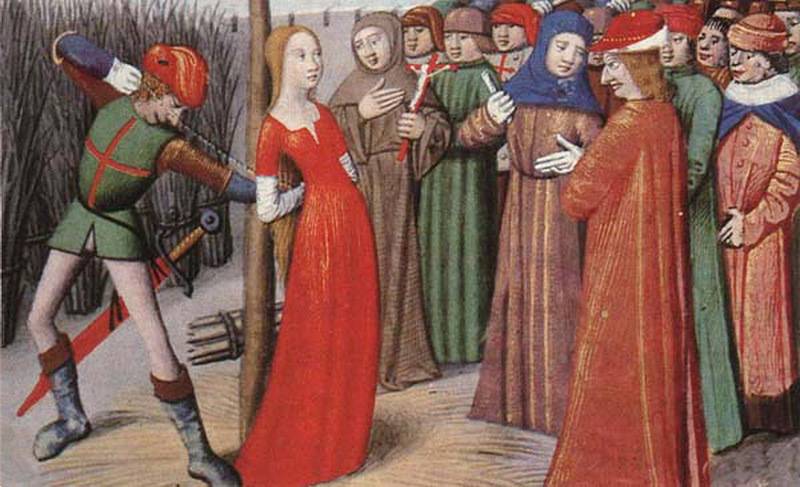
Some historians now argue that Jeanne, in general, was just a symbol, and almost a toy in the hands of "real" commanders. Of course, no one claims that Joan of Arc was the reincarnation of Julius Caesar or Alexander the Great. It's about the strength of the personality. Mark Twain quite rightly wrote in the historically accurate novel Personal Memoirs of Jeanne d'Arc by Sierre Louis de Comte:
“She was great in her ability to discover abilities and talents, wherever they lurked; great with her wonderful gift to speak convincingly and eloquently; is incredibly great in the ability to ignite the hearts of those who lost faith, to instill hope and passion in them; the ability to turn cowards into heroes, crowds of lazy people and deserters into battalions of brave men. "
(Louis de Comte is a fellow countryman and associate of Joan of Arc, a witness at the Rehabilitation Process in Paris in 1455, his testimony under oath is recorded in the protocol and, along with other documents of that era, are used by historians as a primary source.)
And in this case, the facts speak for themselves: alongside Jeanne, de Re and de Vignoles, who, unlike many others, were able to raise their eyes up and see the stars, became heroes. After her death, they quickly degraded to their normal state: Gilles de Rais became a Breton imperial aristocrat, La Gere - Gascon's gangster from the main road.
So, an unknown young girl, who suddenly appeared at the dauphin’s court, brought order to the half-decayed army, defeated the British near the walls of Orleans, and forced Karl to be crowned in Reims.
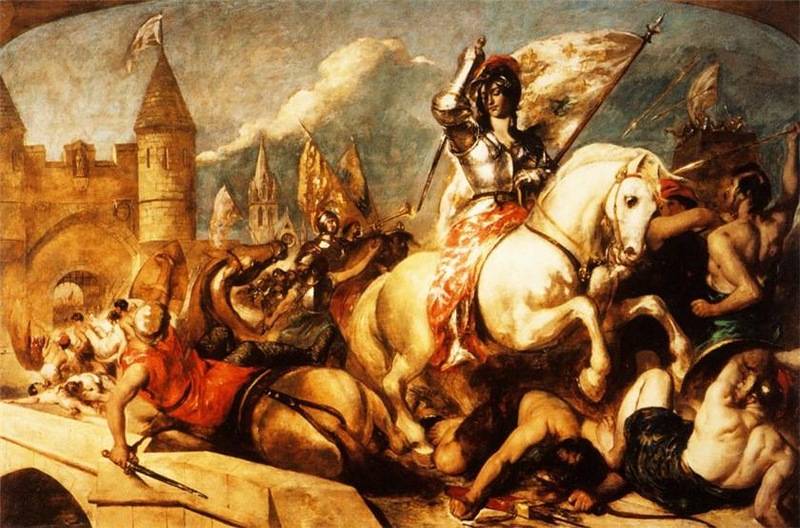
And after Orleans, the city of Compiegne was unblocked.
However, surrounded by the weak and weak-willed Charles VII, people like Gilles de Rais and La Hire were not the rule, but the exception. Arrogant aristocrats could not forgive the rootless provincial Jeanne for any military successes or influence on the king. The first alarm signal sounded less than two months after Charles's coronation: on September 8, 1429, during the unsuccessful assault on Paris, Jeanne d'Arc was wounded in the leg by an arrow from a crossbow and remained without help until nightfall, although the troops of the Duke of Alencon La Tremois were nearby ...
The denouement came on May 23, 1430, when the fortress gates were closed in front of the retreating detachment of Joan of Arc, almost all of her soldiers were killed in front of the gloating French barons. Jeanne herself was captured by the Burgundians, who at that time were allies of the British. Historians are still arguing: would the commandant of the castle have dared to close the gates if next to Jeanne there was an immensely devoted marshal and peer of France Gilles de Rais?
But Joan of Arc could still be saved. According to the customs of that time, in the event of an offer of a fair ransom, the belligerents had no right to keep the captured enemy warrior. There was even a peculiar scale according to which prisoners of war were assessed, according to which no one could demand ransom for an ordinary knight as for a noble baron, and for a baron as a duke. But Charles VII did not show the slightest interest in the fate of Joan of Arc and did not even try to enter into negotiations with the Burgundians. But the British offered for Joan a price equal to the ransom of the prince of blood. They prudently left the right to judge Jeanne d'Arc to the French themselves, and they very successfully coped with the task assigned to them. They still did not dare to torture the folk heroine, but they subjected the young girl who sincerely believes in God, but not experienced in matters of theology, to the most severe moral pressure. They accused her of denying the dogma of Unam Sanctam etc and of blasphemy in many other positions of the Catholic faith, of profanity, idolatry, of breaking the covenant of honoring parents, expressed in the unauthorized abandonment of her home, and also of the fact that she “shamelessly rejected decency and of her gender, without hesitation, she took on the shameful attire and military guise. " She was declared an instigator to war, "angrily thirsting for human blood and compelling to shed it." Jeanne's statement that "the saints speak French, because they are not on the side of the English", was recognized as blasphemy towards the saints and a violation of the commandment to love one's neighbor. Jeanne's confidence that she would go to heaven if she kept her virginity was found to be contrary to the foundations of the faith. She was also recognized as a superstitious, idolater, summoning demons, accused of sorcery and predicting the future. The highest hierarchs of the French Catholic Church and the most authoritative professors of the Sorbonne "established" that the voices that called on Joan of Arc to defend the fatherland did not belong to the Archangel Michael and Saints Catherine and Margaret, but to the demons Belial, Behemoth and Satan. Finally, she was accused of not wanting to rely on the court of the church and obey it. The pressure on Jeanne did not stop even during her illness caused by fish poisoning. Abandoned by everyone, frightened, tired and disappointed, Jeanne agreed to sign the abdication and agree with the verdict of the church. On May 24, 1431, she was sentenced to eternal imprisonment on bread and water and changed into a woman’s dress, but on May 28, she again put on a man’s suit and stated that “she didn’t understand the meaning of her renunciation”. On May 29, the same judges confirmed the fact of a relapse of heresy and passed a resolution on the transfer of Jeanne to secular justice. On May 30, Jeanne was excommunicated and sentenced to be burnt at the stake on the same day. Before the execution, she asked forgiveness from the British and Burgundians, whom she ordered to pursue and kill.
By the way, on the net you can find and listen to the aria "Mass" from the rock-opera "Jeanne d'Arc" (group "Temple"), in which there is the voice of Gilles de Rais ("The False God of the Human Flocks").
The war with the British continued, but disillusioned with his king, Gilles de Rais left the service. Only in 1432, he briefly returned to active military activity, assisting Charles VII in lifting the siege of Linyi. Gilles de Rais settled in the castle of Tiffage, where he lived, surrounded by numerous retinues, enjoying fame and fortune. His guards at that time numbered 200 knights, 30 canons served in his personal church.
It should be said that, unlike most of the French aristocrats of that time, Gilles de Rais received a good education. He was known as an art connoisseur, versed in music, collected a large library. The artists, poets and scientists who came to his castle invariably received generous gifts. Large funds were spent on the glorification of Joan of Arc, who at that time was quite officially considered a witch (the savior of France would be rehabilitated only 20 years later - in 1456), in particular, the grandiose Mystery of Orleans was commissioned and staged in the theater. But in financial matters, Gilles showed a rare carelessness and after 8 years was faced with a lack of funds. Meanwhile, the baron was not accustomed to deny himself anything, and therefore took the traditional and pernicious path: he began to mortgage his castles and sell land. But in these circumstances, Gilles de Rais showed a certain originality, and, in an attempt to prevent ruin, he turned to alchemy and magic. Of course, he found an assistant in these dubious matters very quickly: the Italian adventurer Francesco Prelati, who claimed that he had a demon named Barron in his service, who was able to direct their search along the right path. Relatives of Gilles de Rais were indignant, his wife went to her parents, and his younger brother Rene achieved the division of property. Charles VII, who had heard rumors about the extravagances of Gilles de Rais, still remembered the merits of his marshal and tried to stop his ruin. In 1436, he forbade him to further sell the estates, but the king was still very weak and his decree in Brittany was simply ignored. The main buyers and creditors of Gilles de Rais - the Duke of Breton John and his chancellor, the Bishop of Nantes Malestrois, already firmly seized their victim and did not want to let her go, even about the king's order. Having bought almost all of Gilles de Rais' possessions for a pittance, they nevertheless experienced some anxiety, since the contracts they concluded with Gilles gave him the right to buy back. A neighbor could "take hold of his mind," and his broadest connections at the royal court could allow him to gradually regain his pledged estates. But in the event of the death of Gilles de Rais, his possessions would forever become their property.
Meanwhile, rumors suddenly spread throughout the district that the former marshal and a recent French hero showed inclinations of a maniac and a sadist, using his high position in society, allegedly ordering his servants to kidnap boys, who are invariably killed after abusing them. It was alleged that the cellars of the castle are littered with the remains of innocent victims, and that de Re's prettiest heads are prettiest as relics. They also said that the envoys of Gilles, led by his chief trap de Brickeville, hunt for children in the surrounding towns and villages, and the old woman Perrin Meffre lures the children directly to the castle. Popular rumor associated with Gilles de Re around 800 cases of disappearance of children. However, this activity of the former marshal did not fall under the jurisdiction of a spiritual or inquisitorial court. It may seem strange, but later these crimes were considered as secondary, incidentally, in between cases, along with accusations of drunkenness and drinking habits. The fact is that in the XV century in France at least 20 thousands of boys and girls disappeared every year. The life of a child of poor peasants and artisans in those days was not worth a penny. Thousands of young ragged people whom their parents could not feed, wandered around the district in search of petty earnings or asking for alms. Some periodically returned home, others disappeared without a trace, and no one could say with certainty whether they were killed or attached to some trade caravan or to a troupe of wandering acrobats. Too arbitrary treatment of children in the territories subject to the French barons, however terrible it may sound today, was not something out of the ordinary at that time, and could not serve as a basis for issuing a notable person of death sentence in which numerous enemies marshal. And because the main crimes that should have been imputed to the blame of Gilles de Rais, should have been apostasy, heresy and connection with the devil. Alchemy classes were also taken into account, since the special bull of Pope John XXII still remained in force, anathematizing all alchemists.
The occasion for an open speech against him was given by de Re himself. He quarreled with the brother of the Duke of Breton’s treasurer Jean Ferron, who was ordained and on this basis enjoyed personal inviolability. Gilles de Rais did not stop it: the baron seized his own castle, sold to the brother of the priest, in which his offender was at that moment. The priest at that moment served the mass in the church, which did not prevent Gilles from grabbing him and, chained in shackles, then kept in the basement. It was too much, the Duke of Brittany ordered the release of the prisoner and return the castle sold to the new owners. However, during his time with the practice of magic, de Ree has apparently already lost all sense of reality: he not only refused to fulfill this legitimate demand of his overlord, but even beat up his envoy. The result was a real punitive military operation: the castle of Tiffezh was besieged by the troops of the duke, and the humiliated baron was forced to submit to force.
However, the position of Gilles de Rais was so high that even now his secular enemies did not dare to bring the Baron to court. But the spiritual authorities acted more decisively. The first was the Bishop of Nantes Maledestroy, who at the end of August 1440, during a sermon, informed the congregation that he had become aware of the heinous crimes of "Marshal Gilles against young children and teenagers of both sexes." The bishop demanded that all persons possessing substantial information about such crimes make official statements to him. In fact, Jean de Maledestroy relied on the only statement about the disappearance of the child, which was filed in his office by the spouses Ace a month before, no facts damning Gilles de Rais were contained in this statement. However, the preaching of Maledestroy made an impression in the community and soon his office received statements about the disappearance of 8 children. 13 September 1440 g. Bishop summoned Gilles de Rais to a spiritual court, where he was first charged with serving the devil and heresy. Two of the most trusted and close servants de Re (Silje and Brickeville) fled, but the baron himself boldly appeared at the court, where he carelessly agreed to confess to the bishop the right to judge him. By agreeing to participate in the trial as a defendant, Gilles de Rais, for some reason, forgot about his lack of jurisdiction to the secular court of the city of Nantes and the court of the bishop. He could easily have avoided the proceedings, appealing to his lack of jurisdiction of any authority other than the royal one. The worst thing that threatened him in this case was the severe penance and the monetary penalty for insults inflicted on the Church in the person of her servant. But the baron, as if blinded by self-confidence (or perhaps by the hope of intercession of the demon Prelati), agreed to answer all the charges of the bishop, thereby voluntarily giving himself into the hands of enemies.
From this moment on, Gilles de Rais was doomed. Prelate and some servants of the baron were arrested and sent to Nantes. There they were subjected to torture, which an ordinary person cannot withstand. As a result, confessions were obtained in which terrible truth was intricately intertwined with monstrous fiction.
Initially, Gilles de Rais held firmly, denying all charges. Coming to his senses, he questioned the powers of the spiritual court, arguing that all crimes attributed to him fall under the jurisdiction of the criminal court. However, church authorities and inquisitors did not intend to let go of such precious booty, Gilles de Rais was excommunicated and the prosecutor, after examining the points of accusation, went to meet the spiritual authorities. In his conclusion on the distribution of jurisdiction, crimes against children were not even considered, but there was riot in the church and insulting shrines, which were brought to a bishop’s court, and devotional service, apostasy, heresy, which fell into the jurisdiction of the inquisitorial court. Gilles de Rais was broken. In exchange for the removal of the excommunication, on October 15 he repented of all the crimes attributed to him. In his testimony, the baron claimed that he had taken an example from the rulers of ancient Rome, about whose barbaric perversions he had read in illustrated manuscripts stored in the family library. “I found a book in Latin about the life and customs of the Roman emperors, written by the historian Suetonius (Suetonius),” said Gilles de Rais, “This book contained beautiful drawings depicting the behavior of these pagan emperors, and I was able to read the exciting the story of how Tiberius, Caracalla and other "Caesars" amused themselves with the children and found their only pleasure, tormenting them. I decided to be like the emperors mentioned and that evening I began to do the same thing as they ... "
As we remember, popular rumor attributed to Gilles de Rais the killing of 800 children, but the court proved his involvement in 140 disappearances. At the same time it was recognized that only one of these children was killed for magical purposes. This circumstance was very disappointing for the judges and therefore the confession of a baron did not satisfy the inquisitors, who “in the interests of the truth” demanded to subject him to torture. Discouraged by such a turn of affairs, Gilles de Rais shouted to the prosecutors: “Didn’t I already commit myself to such crimes, which would be enough to convict two thousand people to death!” In the end, Gilles de Rais was sentenced to be hanged and burned. Two of his servants were also convicted with him. The verdict was carried out on 26 on October 1440 of Mr. Monstrele, in his chronicle, wrote about this execution:
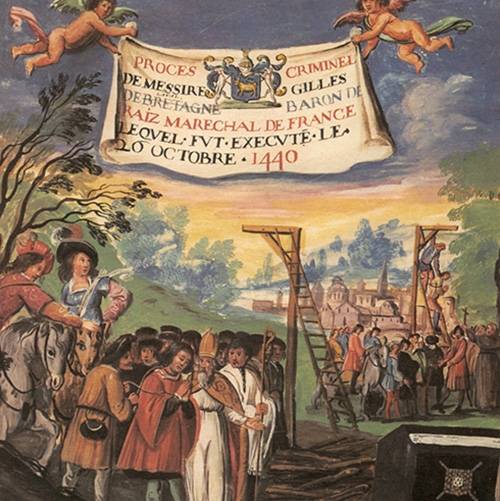
However, was Gilles de Ré really guilty of all the crimes attributed to him? Or, like the Templars, he was slandered and fell victim to greedy neighbors who dreamed of taking possession of his property? Some researchers point out that when reading the protocols of the trial of Gilles de Rais, which, by the way, were published only at the beginning of the twentieth century, a lot of things cause, at a minimum, bewilderment. First of all, numerous procedural irregularities draw attention to themselves: not only did Giloux de Rais not be provided with a lawyer, even his personal notary was not allowed to attend court sessions. It was rejected by Gilles de Rais's proposal to resolve the issue of his guilt by an ordeal - “God's judgment”, to which he, as a man of noble birth, had every right, and which was to be put to the test with a hot iron. Instead, the judges decided to use torture. Of the nearly 5 thousands of Baron’s servants, only a few people were invited and interrogated as witnesses, almost all of them, including even allegedly having a personal demon, Francesco Prelati and the “live goods supplier” Meffre, were later released. The judges in this trial were obviously interested only in the sovereign baron Gilles de Rais. This clearly speaks of the ordered nature of this process and the vested interests pursued by its organizers. In the castles of the marshal, contrary to rumor, they did not find a single corpse. Strictly speaking, the court can undoubtedly be proved only by practicing alchemy and trying to make contact with the demon maestro Prelati. De Rae's personal confessions, thanks to which he went down in history as a sadist and murderer, were obtained through cruel moral and physical influence. Marshal was first excommunicated, and then tortured until he promised to confess "voluntarily and freely." For the confirmation of these confessions, he was promised an easy death - the traditional “mercy” of the inquisitors in the form of suffocation before being burned. Doubts about the guilt of the marshal arose immediately after his execution. Already after 2, Gilles de Rais was rehabilitated by the king of France, who officially declared that his marshal had been convicted and executed without justification. At the place of execution, the daughter of de Rais set up a monument, which soon became a place of pilgrimage for nursing mothers praying to send them an abundance of milk. Interestingly, in 1992, at the initiative of the writer Gilbert Prutot, a tribunal was formed in the French Senate, consisting of former politicians, parliamentarians and experts, whose goal was to reconsider the case of Gilles de Rais. It was about this process that the question was asked in the TV show “Own Game” (which was already mentioned at the beginning of the article): one of the players took Gilles de Raes for Robespierre, the second for Mazarin, only the third of them answered correctly. This process ended with the acquittal of the defendant, but the verdict of the judicial collegium is not valid, since the assembled composition of the court did not have the authority to review the cases of the XV century.
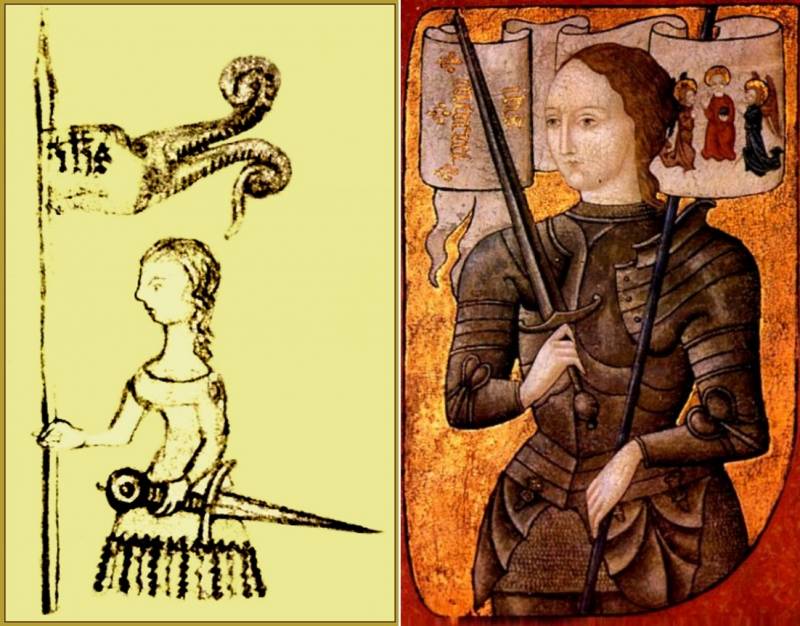
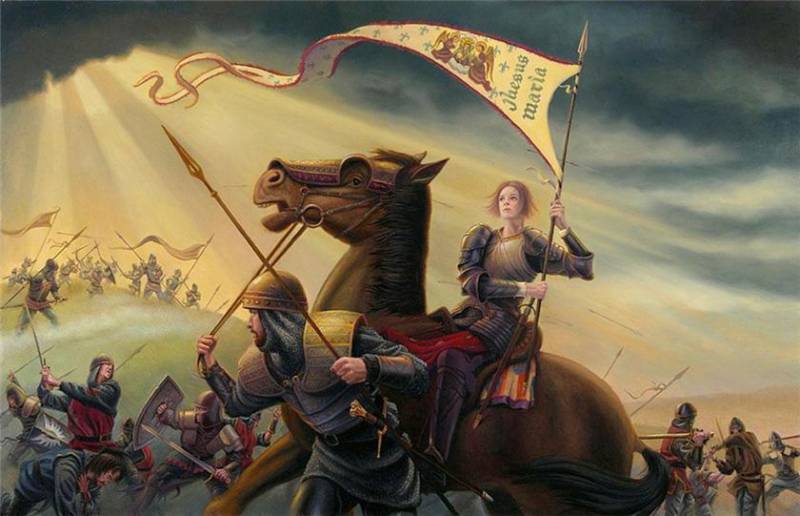
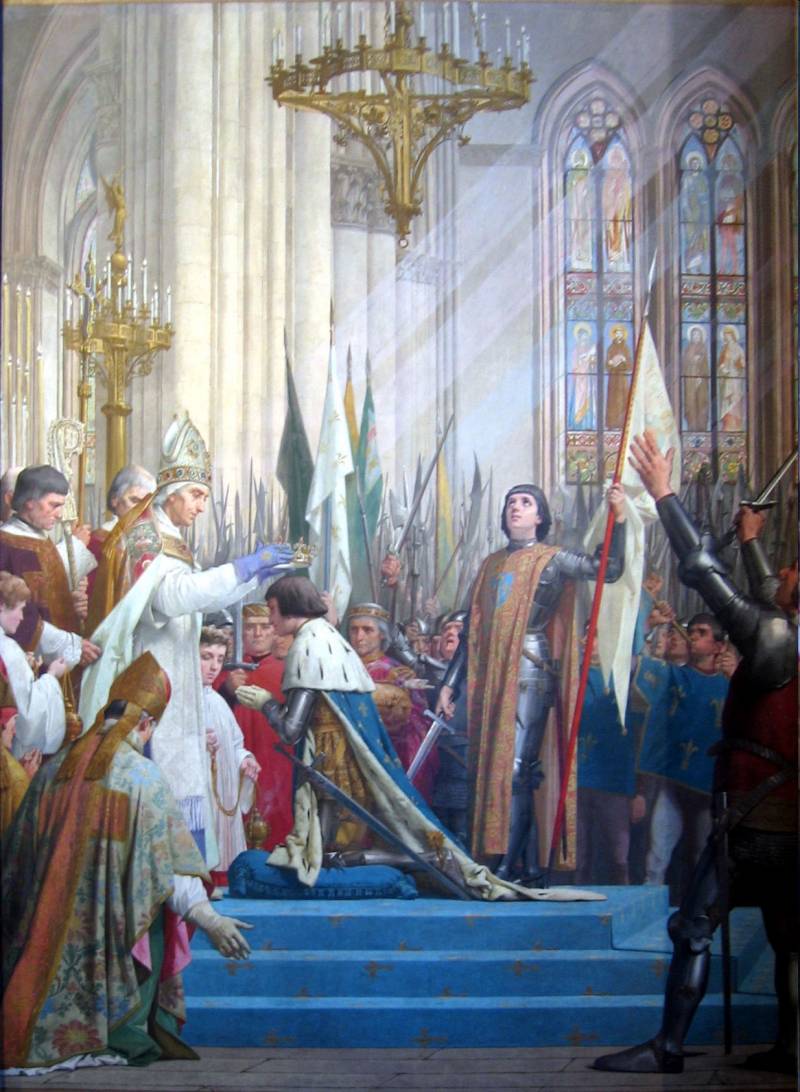
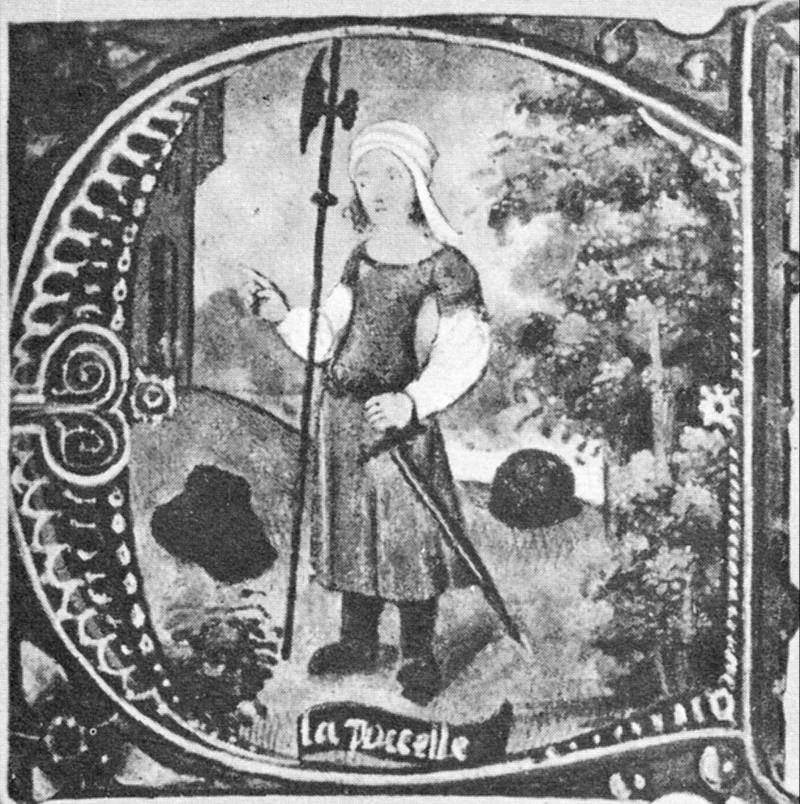
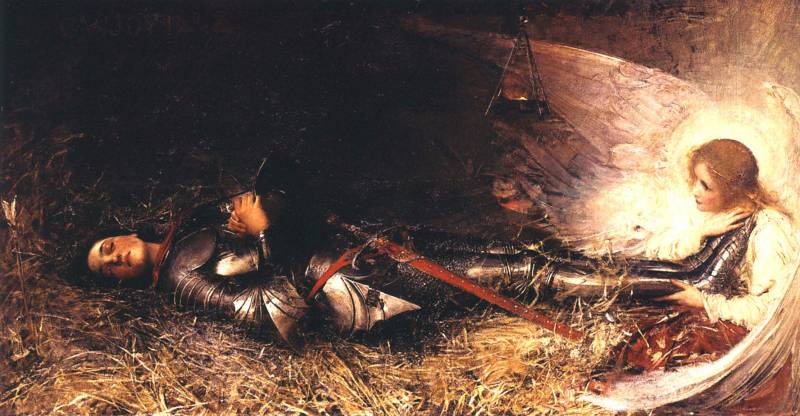
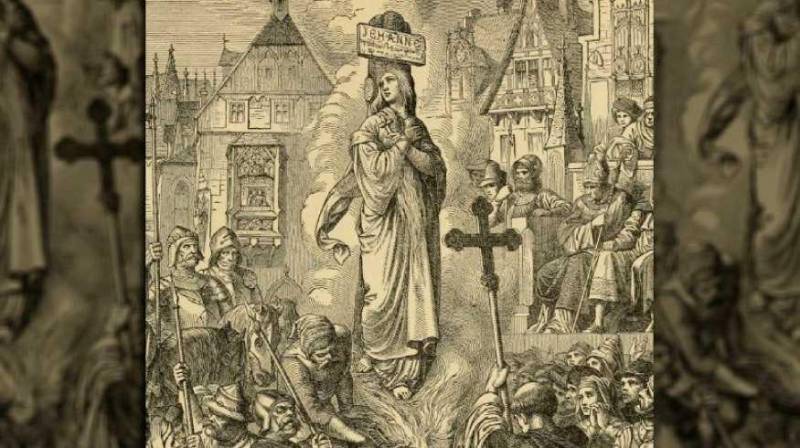
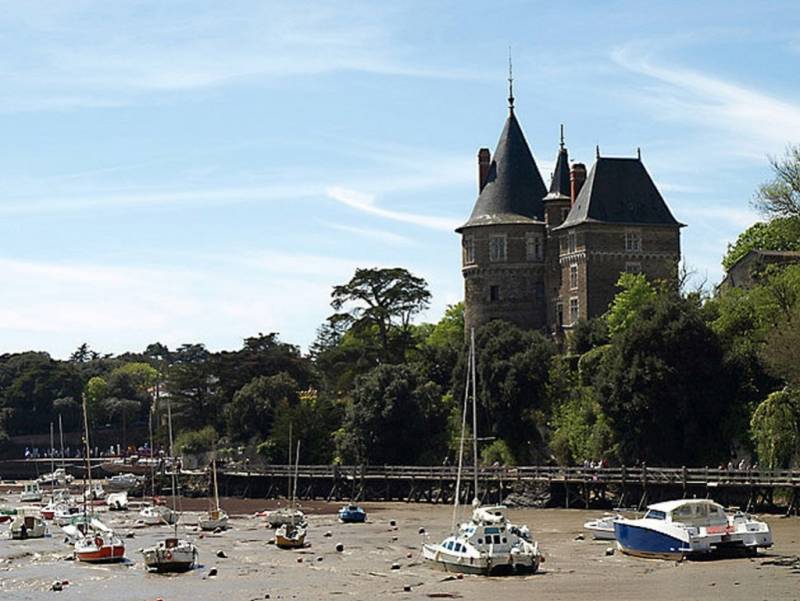
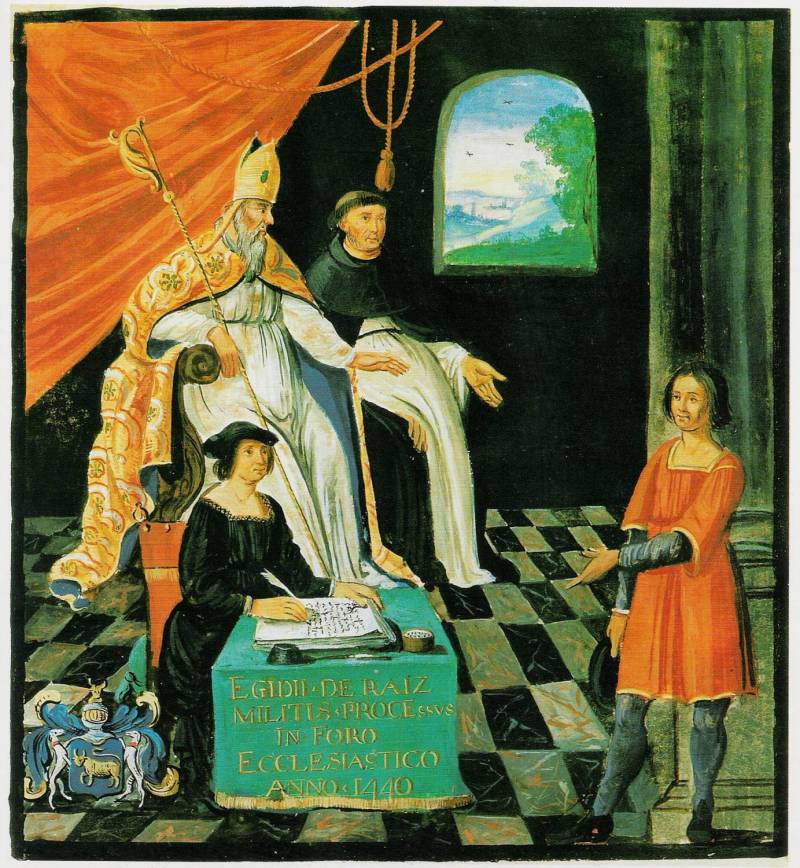
Information